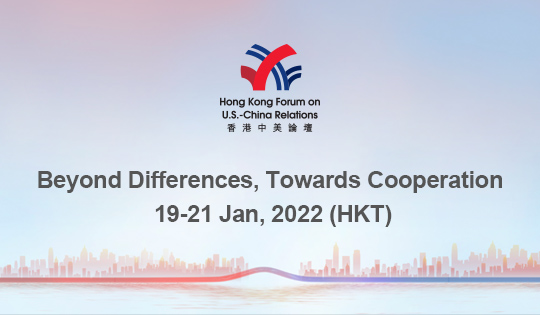This year’s American election politics have prompted numerous ruminations on the rise of populism, other challenges to liberal democracies, or even what America would look like under a Trump presidency. Most commentators have viewed the long spectacle of Trump’s campaign – and its lingering impact on the political landscape – exclusively in terms of US or “Western” politics. Yet Hong Kong’s continuing political crisis under Chief Executive C.Y. Leung offers a chilling glimpse into what Trumpian politics in government might look like.
Abusive litigation
“All of these liars will be sued after the election is over.”
- Donald Trump, Oct. 22, 2016
Leung has shown little hesitation in threatening – or resorting to – abusive litigation against his perceived opponents. In 2013 he threatened to sue the Hong Kong Economic Journal after it ran an op-ed by Joseph Lian Yi-zheng that purported to highlight Leung’s connections with triads and raised the possibility that he, or connected individuals, could be subjected to shuanggui (Party disciplinary investigations). Earlier this year, Leung
again threatened to sue a newspaper – this time the pro-democracy tabloid Apple Daily – for discussing a secret payment of HK$50 million from Australian company UGL. Jose Carlos Ugaz, chairman of Transparency International, panned the libel threat against Apple Daily as “
ridiculous.”
More significantly, there are signs that Leung’s administration has invoked litigation in order to shift blame for politically unpopular decisions to the Judiciary. The occupation of part of Mongkok district during the Umbrella Movement ended not through the invocation of the police’s public order powers, but after an ostensibly independent group of taxi and minibus drivers obtained an injunction – a cynical move to
disguise a public law issue as a civil dispute. More recently, the government’s last-minute application to bar two localist politicians elected to the legislature from retaking their oaths of office is a clear abuse of a process that runs counter to established constitutional principles and precedent.
Mobilising the masses
“I think you would have riots.”
- Donald Trump, Mar. 16, 2016
A hallmark of Hong Kong politics under CY Leung has been the proliferation of pro-government protesters. Prior to the Leung administration, such groups and demonstrations were “
extremely rare;” they now form an entrenched part of Hong Kong’s political landscape. With them has come an upsurge in violence against
pro-democracy protesters, as well as members of the press. As with violent Trump supporters, there are no signs of official connections between the government and its supporters’ conduct. Yet, the police have been accused of selective enforcement – for example by allowing anti-Occupy mobs
to operate with impunity.
Xenophobia
“They’re bringing crime. They’re rapists.”
- Donald Trump, June 16, 2015
Leung and others in his camp have also been adept at exploiting xenophobic sentiment. Some of their vitriol has been directed at “foreign” (i.e. not ethnically Chinese) judges on the Court of Final Appeal – judges whose status on the Court is protected by Article 82 of the Basic Law. However, much more invective has been directed at individuals who seek protection under the Convention Against Torture. Pro-government politicians have stumbled over each other to smear asylum seekers as “fake” refugees or advocate
internment in offshore camps. Leung outdid them all. Speaking after his 2016 Policy Address, the Chief Executive
suggested that Hong Kong might withdraw from the Convention Against Torture over the “problem” of “fake” refugees.
Corruption
“…you’d have to work incredibly hard to find a politician who has the kind of history of corruption, double-dealing, and fraud that Donald Trump has.”
Allegations surrounding Leung’s receipt of a payment of HK$50 million from UGL have proven to be an albatross around Leung’s neck since 2014 when The Age first exposed the payment. Leung has repeatedly
stonewalled on the issue – and, as mentioned above, even threatened to sue the Apple Daily over its discussion of the UGL scandal.
Yet, even this may pale into insignificance compared to strange goings-on at the Independent Commission Against Corruption, the city’s corruption watchdog. In July 2016 Rebecca Li, the acting head of the ICAC’s investigative unit, was abruptly removed without explanation; senior investigator Dale Ko resigned
days later. ICAC Commissioner Simon Peh attempted to quell speculation by
declaring that he, and not Leung, made the decision to fire Li. Yet suspicions
persist that Peh – who is
accountable to the Chief Executive – removed her because of her investigation of the UGL payments. Peh subsequently panned the allegations as “
slander” in a letter to democratic legislators, but
declined to meet with them to explain the circumstances behind the abrupt personnel changes.
Tearing the political fabric asunder
“I’ll tell you at the time. I’ll keep you in suspense, okay?”
- Donald Trump, at the third presidential candidates’ debate
Each of these incidents, as serious as they are, may still seem like isolated aberrations. But the common thread – and the one that most closely links Leung with Trump – is the willingness to weaken, or destroy, basic constitutional and political traditions that happen to stand in the way of “winning.” Principles once seen as fundamental to Hong Kong’s continued prosperity as diverse as separation of political powers, freedom of the press, and clean government have all been thrown into question by CY Leung’s administration. Small wonder that some localists have grown so disgusted by the whole spectacle that they want to make Hong Kong Great Britain again.
